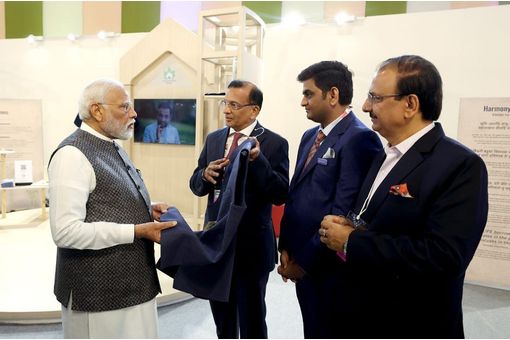Interviews
EU gives developing countries duty-free access with GSP+
13 Dec '08
3 min read
The European Commission has decided to give 16 developing countries duty-free access to the EU market for around 6400 tariff lines, under the European Union's special incentive arrangement for sustainable development and good governance.
The preferences, called GSP+, are in addition to the standard Generalised System of Preferences (GSP) extended to developing countries. GSP+ is offered to vulnerable developing countries that have ratified and effectively implemented 27 core UN and ILO conventions on human and labour rights, and other international conventions related to the environment and governance principles.
As a result of the Commission's decision today, the GSP+ beneficiaries from 1 January 2009 until the end of 2011 will be: Armenia, Azerbaijan, Bolivia, Colombia, Costa Rica, Ecuador, El Salvador, Georgia, Guatemala, Honduras, Mongolia, Nicaragua, Paraguay, Peru, Sri Lanka and Venezuela. The eligibility of two of the countries, El Salvador and Sri Lanka, is currently the subject of an investigation by the European Commission into the implementation of certain UN and ILO conventions.
EU Trade Commissioner Catherine Ashton said: "GSP+ is at the heart of our pro-development trade policy. The decision today ensures that sustainable development and good governance will continue to be rewarded."
GSP+ provides an important incentive to developing countries to ratify and effectively implement a broadly defined set of international standards in the fields of human rights, core labour standards, sustainable development and good governance. Experience shows that the incentive effect of the GSP+ is strong, as countries have made every effort to fulfil the requirements.
GSP+ preferences are of real economic value to the beneficiary countries: in 2007 there was EUR 4.7 billion worth of trade under this scheme, with a nominal duty loss (compared to standard GSP rates) for the EU of over €357 million. The duty-free access means a considerable tariff reduction over the rates applied under the regular GSP scheme. Tariff cuts include tobacco (cut by up to 52%), various fruit juices (up to 30%), fruits (up to 20%), vegetables (up to 14%), fish (up to 20%) and honey (up to 17%).
Before making the decision on GSP+, the European Commission examined all applications submitted before the deadline of 31 October 2008. Applications were checked against the eligibility criteria set in the GSP Regulation, drawing as appropriate on the findings of the relevant international organisations for the conventions involved.
As a result of the examination the list of GSP+ beneficiary countries for the period 2009 - 2011 has been established. Three countries will receive GSP+ benefits for the first time: Armenia, Azerbaijan and Paraguay. One previous beneficiary country, Panama, did not submit an application before the deadline. The new GSP Regulation provides an additional opportunity for applications in mid-2010, half-way through the life of the GSP Regulation 2009-2011.
The preferences, called GSP+, are in addition to the standard Generalised System of Preferences (GSP) extended to developing countries. GSP+ is offered to vulnerable developing countries that have ratified and effectively implemented 27 core UN and ILO conventions on human and labour rights, and other international conventions related to the environment and governance principles.
As a result of the Commission's decision today, the GSP+ beneficiaries from 1 January 2009 until the end of 2011 will be: Armenia, Azerbaijan, Bolivia, Colombia, Costa Rica, Ecuador, El Salvador, Georgia, Guatemala, Honduras, Mongolia, Nicaragua, Paraguay, Peru, Sri Lanka and Venezuela. The eligibility of two of the countries, El Salvador and Sri Lanka, is currently the subject of an investigation by the European Commission into the implementation of certain UN and ILO conventions.
EU Trade Commissioner Catherine Ashton said: "GSP+ is at the heart of our pro-development trade policy. The decision today ensures that sustainable development and good governance will continue to be rewarded."
GSP+ provides an important incentive to developing countries to ratify and effectively implement a broadly defined set of international standards in the fields of human rights, core labour standards, sustainable development and good governance. Experience shows that the incentive effect of the GSP+ is strong, as countries have made every effort to fulfil the requirements.
GSP+ preferences are of real economic value to the beneficiary countries: in 2007 there was EUR 4.7 billion worth of trade under this scheme, with a nominal duty loss (compared to standard GSP rates) for the EU of over €357 million. The duty-free access means a considerable tariff reduction over the rates applied under the regular GSP scheme. Tariff cuts include tobacco (cut by up to 52%), various fruit juices (up to 30%), fruits (up to 20%), vegetables (up to 14%), fish (up to 20%) and honey (up to 17%).
Before making the decision on GSP+, the European Commission examined all applications submitted before the deadline of 31 October 2008. Applications were checked against the eligibility criteria set in the GSP Regulation, drawing as appropriate on the findings of the relevant international organisations for the conventions involved.
As a result of the examination the list of GSP+ beneficiary countries for the period 2009 - 2011 has been established. Three countries will receive GSP+ benefits for the first time: Armenia, Azerbaijan and Paraguay. One previous beneficiary country, Panama, did not submit an application before the deadline. The new GSP Regulation provides an additional opportunity for applications in mid-2010, half-way through the life of the GSP Regulation 2009-2011.
Popular News
Leave your Comments
Editor’s Pick
































-Ltd..jpg?tr=w-120,h-60,c-at_max,cm-pad_resize,bg-ffffff)





.jpg?tr=w-120,h-60,c-at_max,cm-pad_resize,bg-ffffff)
.jpg?tr=w-120,h-60,c-at_max,cm-pad_resize,bg-ffffff)






